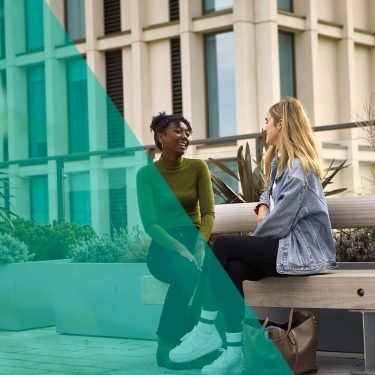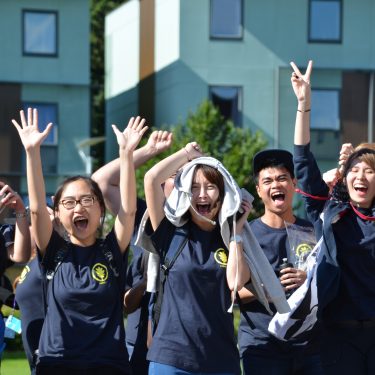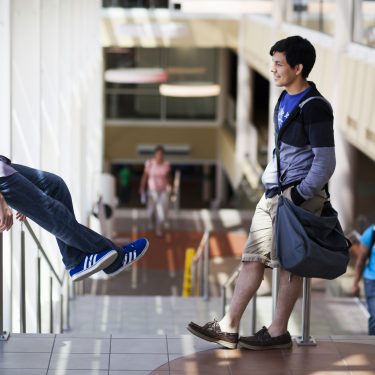Professor David Phoenix is Vice Chancellor of London South Bank University, and previously gave evidence to the Student Futures Commission session on teaching and learning.
With Gavin Williamson’s recent announcement that full-time in-person teaching will be permitted from September, many institutions, and students, will be eagerly awaiting the return of ‘business as usual’ when it comes to teaching. The loss of many opportunities for face to face activity and social interaction have emphasised the importance of the learning community and indeed the importance of being able to engage with the wider opportunities attending university can provide.
It is important when looking forward, though, that we do not forget the lessons leant from the past.
Universities have been supplementing in person teaching with online activities for many years before the pandemic. The concept of online activities is not new. Colleagues across the sector responded incredibly well to the pressures caused by covid and they have created real innovation in aspects of online delivery over the last eighteen months that have both accelerated our understanding of new pedagogic developments and showed the potential of some online engagement.
This experience should not be ignored as we think about what the future of higher education might look like.
Although my institution, London South Bank University (LSBU), has ‘traditional’ 18-year-old students living in halls of residences, we also have a significant number of mature and part-time students (many of whom have caring responsibilities) and around a third are apprentices or sponsored by their employers. This diversity means that our students have a variety of priorities and support needs, all of which we need do our best to take account of. We have had considerable feedback, particularly from students with additional needs, which has highlighted the inequalities that the ‘traditional’ approach to education can produce. In this context, developments such as the University’s use platforms which provides access to pre-recorded lectures has been really valued. Students can now search for content within a video and access advanced accessibility options, which has been useful for some disabled students, particularly the use of captions, and chat functions.
It is inevitable that the changes won’t suit every student.
Writing in Wonke in May, then LSBU Student Union President Hattie Tollerson explained how an SU phone bank was set up in order to contact students and find out how they had been coping with online learning. The SU found that parents with children were finding it more difficult to study; often having to share one digital device for both school and university work. More traditional first-year students highlighted difficulty in concentrating and engaging with their learning. And while many were positive about the university’s response to the pandemic, there was ultimately a feeling of isolation from the university community.
There has been much media coverage about online delivery.
Questions are being asked as to why fees should be paid in full if some activity is not being delivered face to face. This is, in my opinion, too narrow a view. Clearly, if students had signed up for a campus based course and were just getting online activity then these questions should be asked. But we can’t allow an over simplistic interpretation of online opportunities to prevent us evolving these new tools when we know they have the potential to enhance learning
It is my belief that HEIs, especially those with more diverse cohorts such as LSBU, need to move forward with a blended approach that seeks to work for as many people as possible. Indeed, this has been embedded in our corporate strategy for the last 7 years and the aim is to enable a greater degree of individualisation through the use of some online delivery – especially where that involves transmission of knowledge – but in tandem with on campus activities that enable that knowledge to be put into practice and tested in workshops, labs, tutorials, seminars etc.
Alongside finding ways to improve the student experience, we must remember that many staff have spent the last eighteen months working from home in an unprecedented shift away from the traditional 9-5 office hours. While there have been some great innovations that have made working from home easier, they have been done at such a speed that they are far from perfect. We have created more of a hybrid system i.e. one of online and, where possible on campus activity, not a blended system where the online and on campus work have been developed to complement each other and support learning.
At LSBU, we are looking a number of ways to facilitate a move towards a genuinely blended way of working.
To support our academic staff, for example, we are seeking to appoint an increasing number of learning technologists to provide advice in terms of creating strong online material that can convey course content in the same way that in-person lectures and seminars would. We have also brought in external consultants to trial different learning platforms so that we can assess which ones are felt to be best by both staff and students. We have also introduced a range of workshops and listening sessions to try and bring staff together, albeit virtually, to share their experiences. This is not about finding ‘cheaper options’. (The cost in development is, in fact, higher.) It is about finding the best way to support students with their learning and engaging staff in fast moving and exciting areas of pedagogic development. With around half of LSBU’s course portfolio involving elements of practical or laboratory work, we will be returning to on-campus delivery in the new academic year and prioritising this type of delivery – while utilising online teaching methods where we feel they can add value to the student experience. Undoubtedly, it will take time to get the balance between online and offline working right, but the most important thing going forward is the need to continue working in partnership with our diverse staff and student bodies so we can best meet the needs of both.
This piece is part of the ongoing series of blogs and case studies that we will be publishing over the next few months. It represents the views of the author, and is part of the broad conversation the Student Futures Commission is facilitating.







